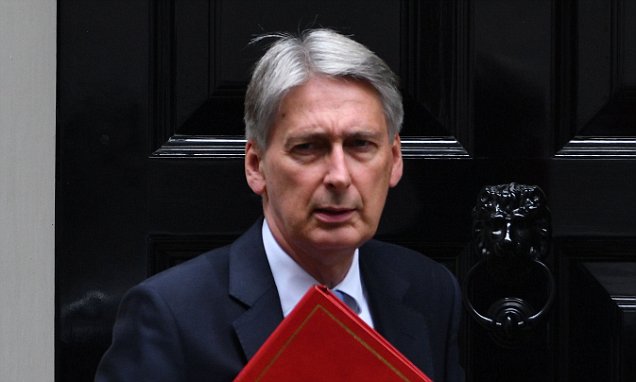
Philip Hammond ‘betrays self-employed’ by scrapping tax cut.
Philip Hammond has scrapped a planned £150-a-year tax cut for self-employed people, marking the latest government U-turn on a Coalition pledge.
The Chancellor said he was reversing plans to reduce National Insurance Contributions (NICs) for more than three million workers.
Mr Hammond had already delayed introducing the change, which was due to come into effect earlier this year.
It has now been permanently shelved, with ministers saying it “would not be right to proceed during this parliament” because of concerns over the impact of the policy on low earners.
The cut to Class 2 NICs was announced by George Osborne in his last Budget in 2016.
Mr Hammond delayed the change last year over fears it would hike bills for self-employed people with low profits.
At the time he insisted the government remained “committed to abolishing Class 2 NICs to simplify the system”.
However, the Treasury’s analysis found that around 300,000 people who make profits of less than £6,000 a year would have had to pay five times more in pension contributions than they currently do.
After a lengthy consultation, the department was unable to find a solution to the issue and has now scrapped the policy.
It is understood there are currently no plans to reintroduce the tax cut in a different form. Scrapping the policy will save around £360m a year, and Mr Hammond will use the Budget later this year to announce how the money will be spent.
In a written statement to MPs, Treasury minister Robert Jenrick said: “The government is announcing today that it will not proceed with the abolition of Class 2 National Insurance contributions (NICs) during this parliament.
“This change was originally intended to simplify the tax system for the self-employed. We delayed the implementation of this policy in November to consider concerns relating to the impact on self-employed individuals with low profits.”
He said the Treasury had consulted on how to avoid “unintended consequences” of the change but added: “A significant number of self-employed individuals on the lowest profits would have seen the voluntary payment they make to maintain access to the state pension rise substantially.
“Having listened to those likely to be affected by this change we have concluded that it would not be right to proceed during this parliament, given the negative impacts it could have on some of the lowest earning in our society.”
Mr Jenrick said the changes to NICs would have introduced “greater complexity to the tax system”, adding: “The government remains committed to simplifying the tax system for the self-employed, and will keep this issue under review in the context of the wider tax system and the sustainability of the public finances.”
Announcing the planned changes in 2016, Mr Osborne said abolishing Class 2 NICs would see the end of an “outdated levy”.
Abolition would have benefited self-employed workers earning between £6,025 and £8,164, who would automatically get the state pension rights from Class 4 contributions without having to pay more.
However, those earning less than £6,000 would have seen their pension contributions increase more than fivefold, from £2.85 to £14.45.
Labour criticised Mr Hammond’s decision to scrap the tax cut.
John McDonnell, the shadow chancellor, said: “This is yet another betrayal of the self-employed.
“These people are the engine of the economy and have been let down again, while giant corporations have seen their tax bills slashed. Few will ever trust Philip Hammond or the Tories again.”













